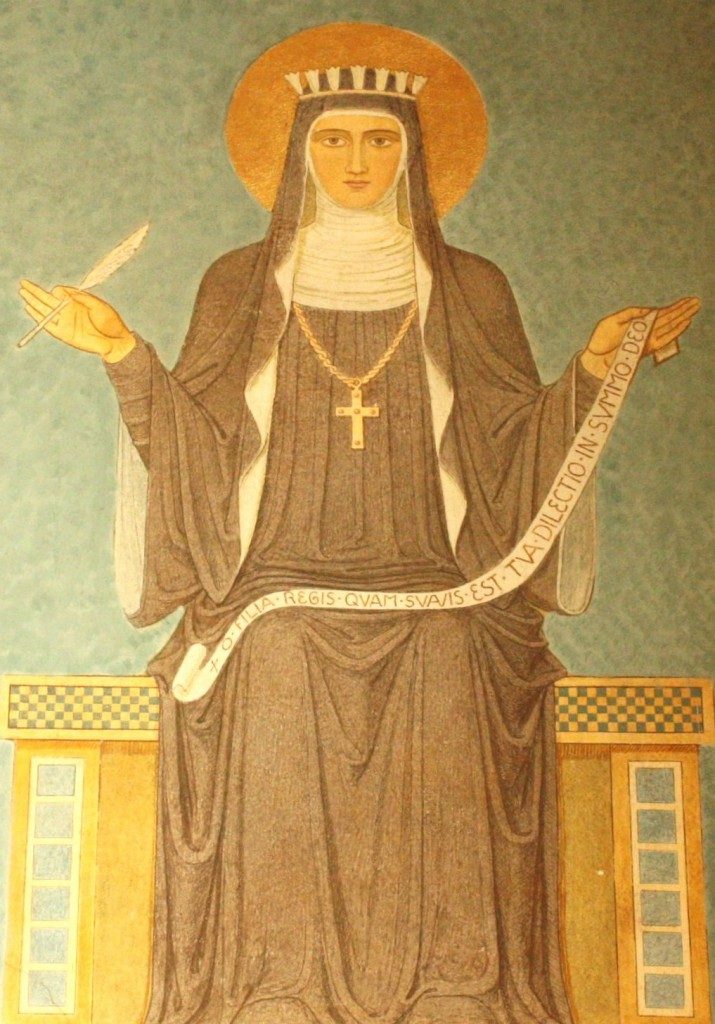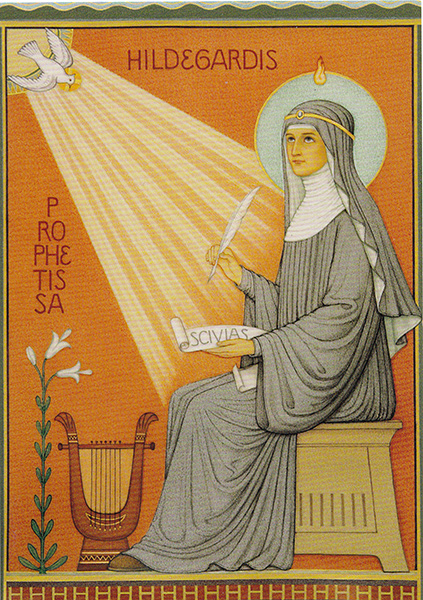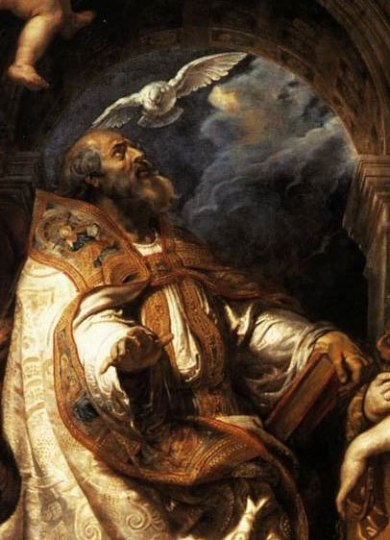Podcast: Play in new window | Download (Duration: 3:36 — 5.0MB) | Embed
Subscribe: Apple Podcasts | Spotify | Amazon Music | Android | Pandora | iHeartRadio | JioSaavn | Podchaser | Gaana | Podcast Index | Email | TuneIn | Deezer | Anghami | RSS | More
Day 9: CHARITY
St. Teresa you have said
The blessings gained through true poverty I think are many, and I wouldn’t want to lose them. I am often aware of a faith within me so great that I think God cannot fail anyone who serves Him. I know that there never is or will be any time in which His words will fail; for I cannot persuade myself otherwise, nor can I fear…It seems to me I have much more compassion for the poor than I used to. I feel such great pity and desire to find relief for them that if it were up to me I would give them the clothes off my back. I feel no repugnance whatsoever toward them, toward speaking to or touching them. This I now see is a gift given by God. For even though I used to give alms for love of Him, I didn’t have the natural compassion. I feel a very noticeable improvement in this matter.”
—Spiritual Testimonies II.3-4
According to Teresa, while interior development necessarily involves continued progress in self-knowledge and self-awareness, it is not egotistical, because it also encourages us to look beyond ourselves to God and to others. Thus progress in the spiritual life really authenticates itself in charity. God’s love, as the evangelist John tells us, is for all, and is so profound that He sent His Son for our redemption. For those engaged in a life of prayer, we must also love with this Divine love. It is a transformative love that changes the way we see and approach our fellow men and women, as Teresa illustrates in the passage above.
May we, therefore, learn to love others with the love that God loves us, that our prayer may be truly perfected.
St. Teresa speaks to us today saying:
“Christ has no body now but yours.
No hands, no feet on earth but yours.
Yours are the eyes through which he looks compassion on this world.
Yours are the feet with which he walks to do good.
Yours are the hands through which he blesses all the world.
Yours are the hands, yours are the feet, yours are the eyes, you are his body.
Christ has no body now on earth but yours.”
O God, who through your Spirit
raised up Saint Teresa of Jesus
to show the Church the way to seek perfection,
grant that we may always be nourished
by the food of her heavenly teaching
and fired with longing for true holiness.
Through our Lord Jesus Christ, your Son,
who lives and reigns with you in the unity of the Holy Spirit,
one God, forever and ever.
St. Teresa, pray for us:
That we may become worthy of the promises of Jesus Christ.
reflection was written by Fr. Emiel Albalahin, O.Carm. Used by permission via the Curia Generalizia dei Carmelitani Please visit http://www.ocarm.org/en/
The prayer offered by Dr. Matthew Bunson and Kris McGregor
Audio versions of the “Interior Castle” and “The Way of Perfection” by St. Teresa of Avila

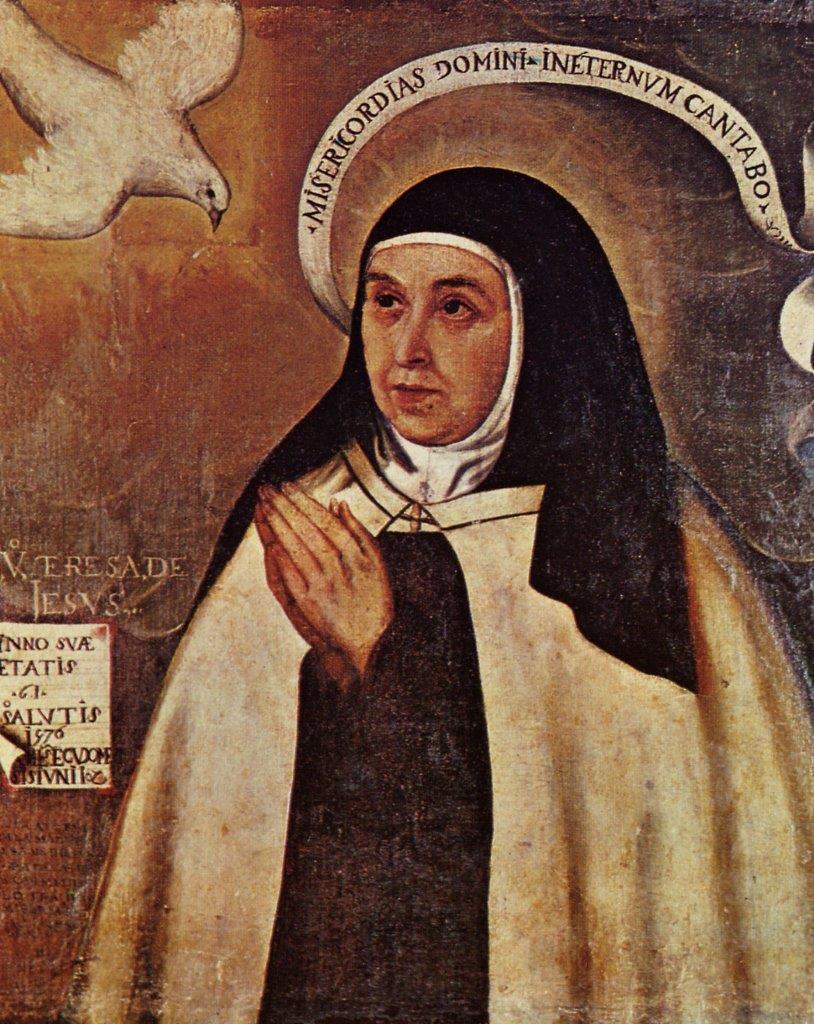
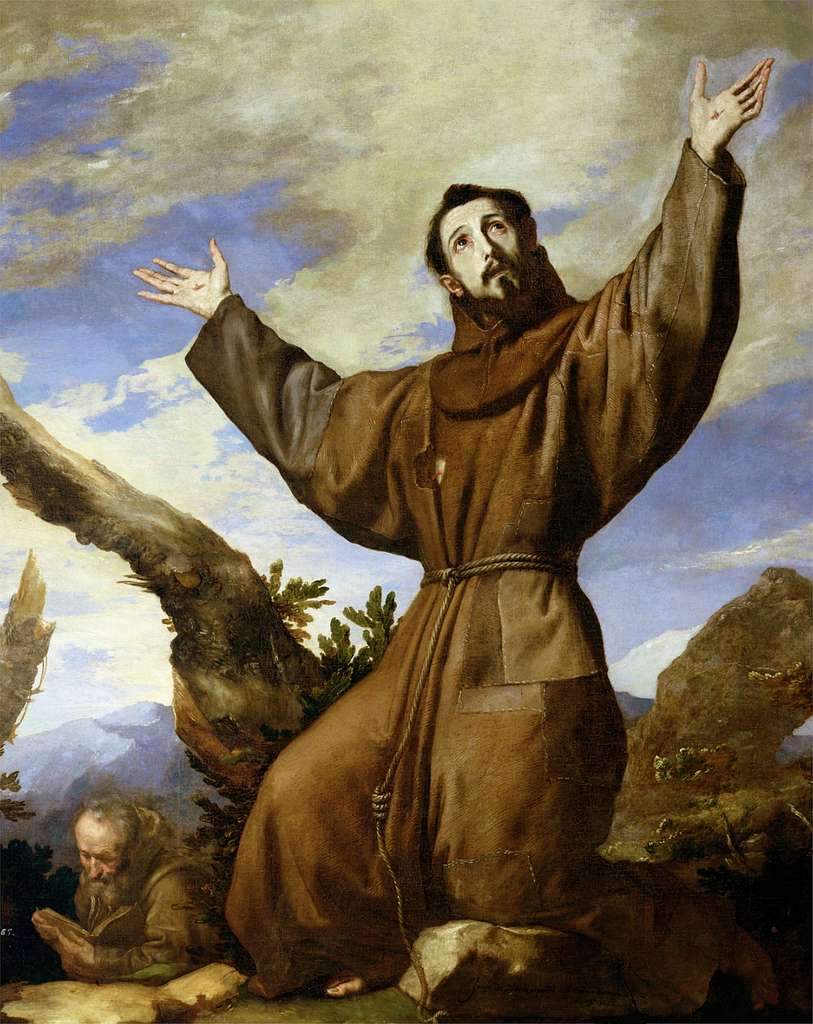 A letter from St Francis of Assisi to all the faithful
A letter from St Francis of Assisi to all the faithful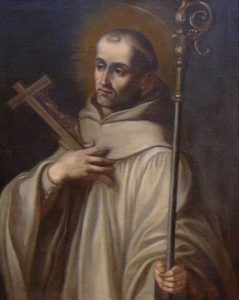 He has given his angels charge over you to guard you in all your ways. Let them thank the Lord for his mercy; his wonderful works are for the children of men. Let them give thanks and say among the nations, the Lord has done great things for them. O Lord, what is man that you have made yourself known to him, or why do you incline your heart to him? And you do incline your heart to him; you show him your care and your concern. Finally, you send your only Son and the grace of your Spirit, and promise him a vision of your countenance. And so, that nothing in heaven should be wanting in your concern for us, you send those blessed spirits to serve us, assigning them as our guardians and our teachers.
He has given his angels charge over you to guard you in all your ways. Let them thank the Lord for his mercy; his wonderful works are for the children of men. Let them give thanks and say among the nations, the Lord has done great things for them. O Lord, what is man that you have made yourself known to him, or why do you incline your heart to him? And you do incline your heart to him; you show him your care and your concern. Finally, you send your only Son and the grace of your Spirit, and promise him a vision of your countenance. And so, that nothing in heaven should be wanting in your concern for us, you send those blessed spirits to serve us, assigning them as our guardians and our teachers.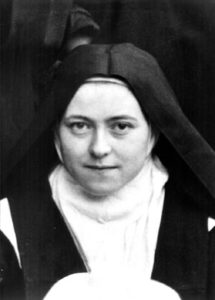
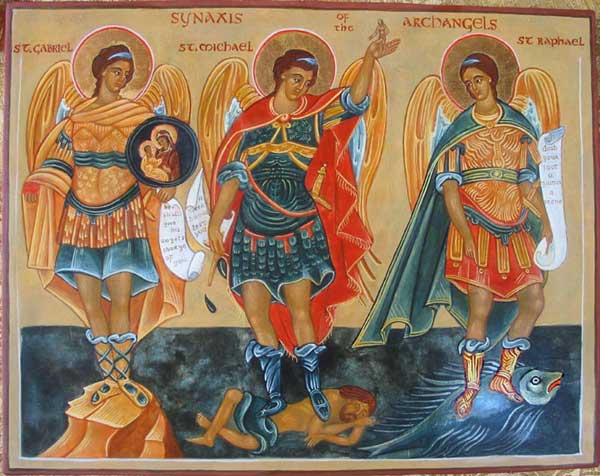
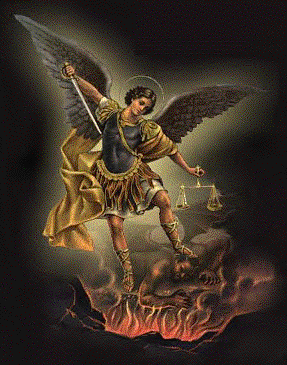
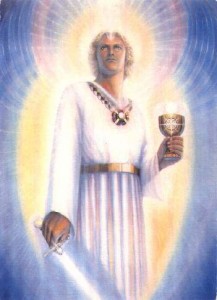 Prayer to St. Michael
Prayer to St. Michael Prayer to the Archangel St. Gabriel
Prayer to the Archangel St. Gabriel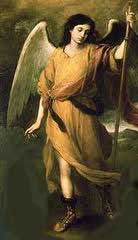 Prayer to the Archangel Raphael
Prayer to the Archangel Raphael